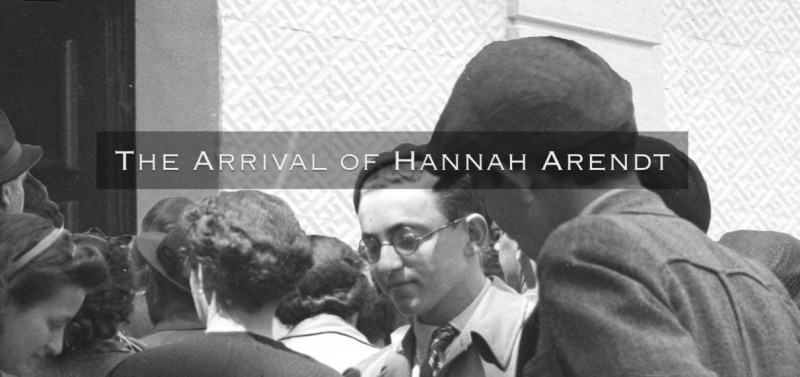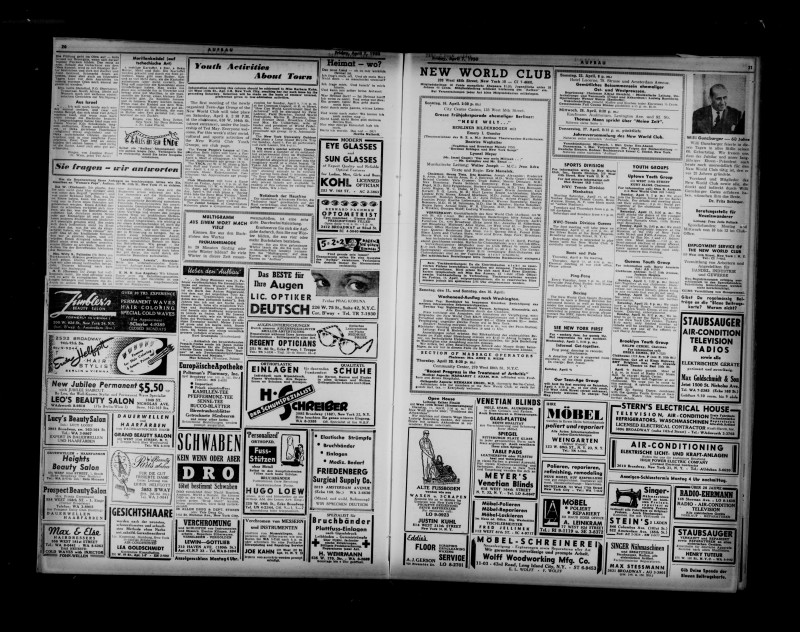
The Arrival of Hannah Arendt
This film describes the arrival of Hannah Arendt - a Jewish, German-American political theorist and publicist - in New York and her reflections on flight and helping people start over.

Heimat – wo?
Das neue Land – ob es mir wirklich Heimat ist.
Ich frag’s mich oft. Und ob mein Herz
Nicht doch – so mancherlei vermisst?
Ich frage mich. Und lausch‘ in mich hinein.
Und kann mir selber keine Antwort geben
War Heimat dort? – Ist Heimat hier?
Ich weiss es nicht. Und weiss nur dies:
Ein grosser, tiefer Riss geht durch
mein Herz,
Geht durch mein ganzes, wirres Leben:
Und weiss noch mehr: Wo immer ich
auch weilen mag-
Nicht Land, nicht Heim gibt meinem Herzen Ruh.
Nur eine einz’ge Heimstatt hab ich noch,
Darin ich wurzle. Das bist-DU!

Home – where?
The new country – whether it really is home to me.
I often ask myself. And whether my heart
Doesn’t miss – so many things?
I ask myself. And listen into myself.
And can’t give myself an answer
Was home there? – Is home here?
I do not know. And only know this:
A big, deep crack goes through
my heart,
Goes through my whole, confused life:
And I know even more: Wherever I
Wherever I may dwell
No land, no home gives my heart rest.
Only one home I still have,
In which I take root. That is YOU!
Hertha Nathorff, née Einstein (1895-1993) was a German pediatrician, psychotherapist, and social worker; she also published several works, including a volume of poetry. She was born in Laupheim into a Jewish family. Threatened with death in Nazi Germany, she organized emigration with the help of American relatives from November 1938, sending her 14-year-old son ahead to England on a Kindertransport. In April 1939, the couple succeeded in leaving the country for London, and in early 1940 they continued their journey to New York. Life in New York exile was fraught with many challenges and frustrations for Hertha Nathorff, typical of many women with academic degrees. She could no longer work as a pediatrician. There was not enough time or money for her to take the recognition exam as a doctor, as her husband had. In New York she worked as a nurse, maid, bar pianist and kitchen help to support the family. She took a very active part in the social life of the German-speaking exile: she organized courses for emigrants in nursing and infant care and cultural events, was the founder of the Open House for the Elderly, president of the Women’s Group, and an honorary member of the presidium of the New World Club. As a German-speaking émigré in New York, she often published in “Aufbau”, a German-Jewish newspaper in exile. She wrote articles on various subjects, sometimes poems, and placed advertisements about her courses in nursing and infant care.
Poem from Aufbau. Nachrichtenblatt des German-Jewish Club, Inc., New York, Friday, April 7, 1950 p. 20.
Translation from German to English © Minor Kontor / We Refugees Archive.
In 1934, the first issue of Aufbau appeared. Initially more of a club and advertising organ, Aufbau soon became a news bulletin about the everyday life of German (not only Jewish) emigrants in exile. This meant advice on legal matters, explanations of the New York subway system, language instruction and job placement, tips on dealing with authorities, etc.
Oskar Maria Graf and Nelly Sachs, Lion Feuchtwanger and Thomas Mann, Mascha Kaléko and many others wrote here.